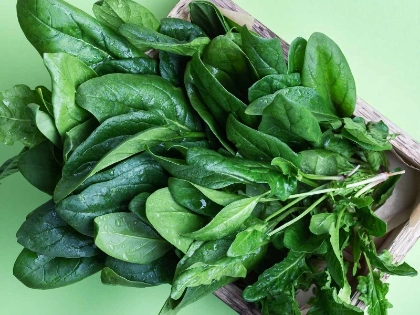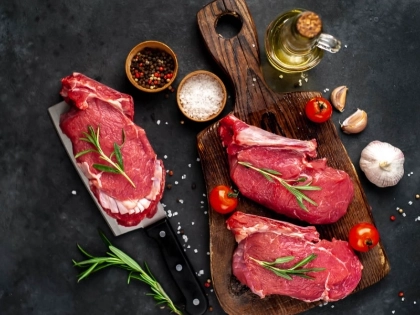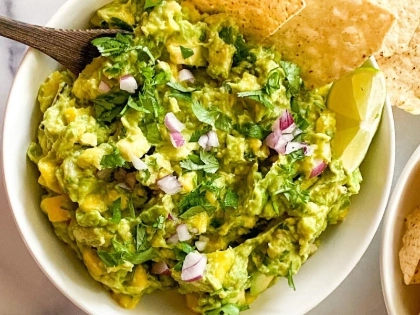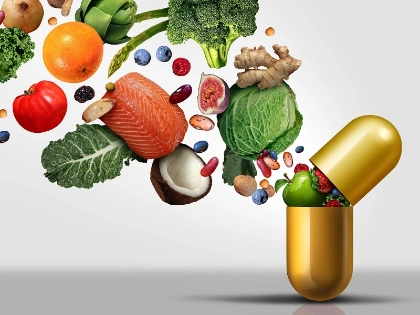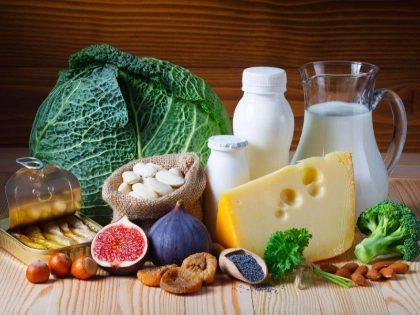Is Avocado Better Than Banana?
Both bananas and avocados are nutritious foods with numerous health benefits. Both are rich in potassium, an important electrolyte component that supports nerve and muscle function and helps control blood pressure. Avocados also contain a variety of vitamins, including vitamin B6 and vitamin C. Both bananas and avocados are rich in dietary fiber. However, avocados contain more nutritional fiber compared to bananas.
Both are high in monounsaturated fats.
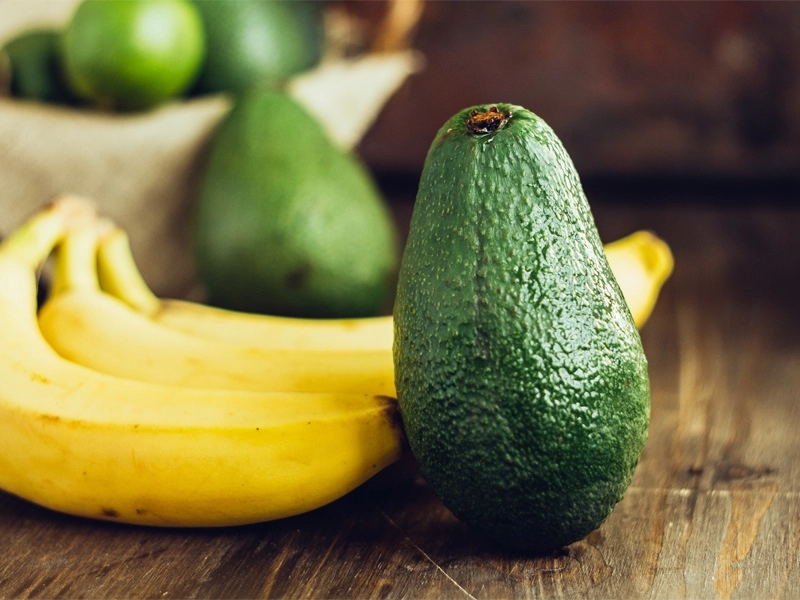
Both are high in potassium.
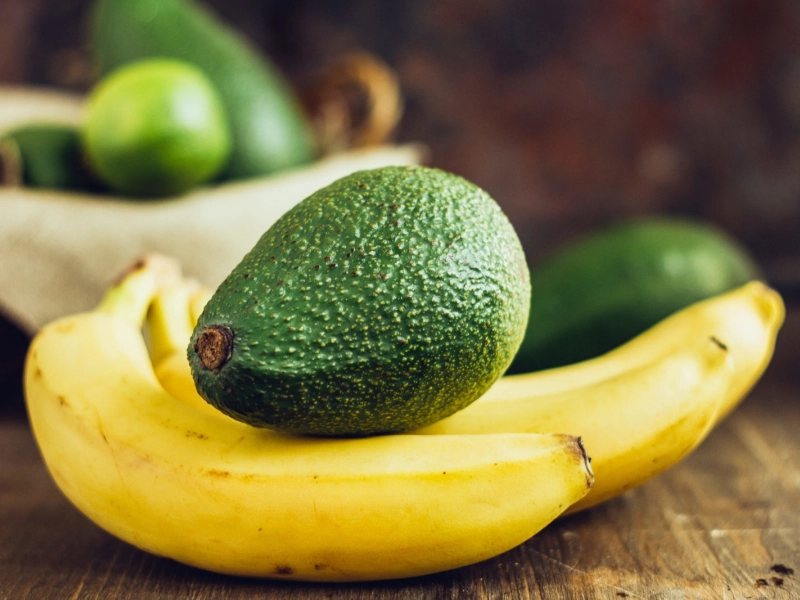 Potassium, an important mineral found in avocados, lowers blood pressure by relaxing blood vessel tone and lowering sodium levels. They also contain monounsaturated fats, which are good for the heart and reduce cholesterol. In fact, a 2022 study published in the journal Nutrients found that replacing one serving of butter or margarine with one avocado may lower the risk of heart disease by raising "good" HDL cholesterol and lowering "bad" LDL cholesterol.
Avocados are a great way to get folic acid, which is very important for pregnant women because it prevents neural tube defects and miscarriages. They also contain carotenoids called lutein and zeaxanthin, which protect the eyes from cataracts and age-related macular degeneration.
These nutrients are fat-soluble, so eating them with healthy fats such as avocados improves their absorption in the body. Mashed avocados can be used as a dip for your favorite salad or spread on whole-grain bread. Additionally, you can cook guacamole and eat it in tacos or burritos with grilled vegetables.
Potassium, an important mineral found in avocados, lowers blood pressure by relaxing blood vessel tone and lowering sodium levels. They also contain monounsaturated fats, which are good for the heart and reduce cholesterol. In fact, a 2022 study published in the journal Nutrients found that replacing one serving of butter or margarine with one avocado may lower the risk of heart disease by raising "good" HDL cholesterol and lowering "bad" LDL cholesterol.
Avocados are a great way to get folic acid, which is very important for pregnant women because it prevents neural tube defects and miscarriages. They also contain carotenoids called lutein and zeaxanthin, which protect the eyes from cataracts and age-related macular degeneration.
These nutrients are fat-soluble, so eating them with healthy fats such as avocados improves their absorption in the body. Mashed avocados can be used as a dip for your favorite salad or spread on whole-grain bread. Additionally, you can cook guacamole and eat it in tacos or burritos with grilled vegetables.
Both are rich in dietary fiber.
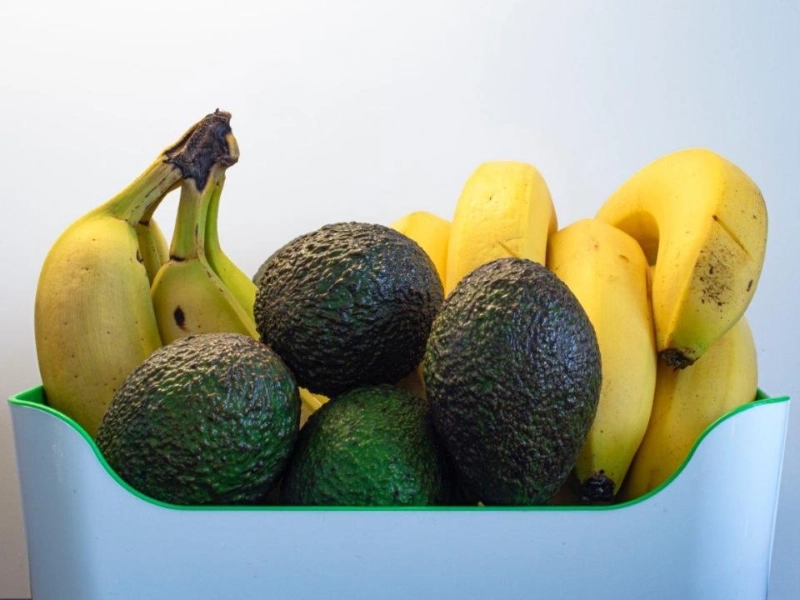 The high fiber content of avocados helps maintain a healthy digestive system. This is very important for a balanced diet due to its ability to prevent colon cancer and constipation. In addition, fiber increases the body's ability to absorb nutrients. This includes fat-soluble vitamins such as A, E, and K. The fatty acids in avocados also increase the absorption capacity of carotenoids such as lutein, zeaxanthin, lycopene, and beta-carotene.
Rich in potassium, avocados help lower blood pressure by increasing cardiac contractions and reducing sodium levels in the body. They also contain B vitamins such as niacin, riboflavin, and thiamine. Avocados are also rich in folate, which aids in DNA synthesis and prevents birth defects.
Avocados are also a good source of vitamin K, which is important for healthy bones. This vitamin is known to increase calcium absorption and prevent osteoarthritis, and the fruit contains an amount equivalent to 35% of the recommended daily intake.
The high fiber content of avocados helps maintain a healthy digestive system. This is very important for a balanced diet due to its ability to prevent colon cancer and constipation. In addition, fiber increases the body's ability to absorb nutrients. This includes fat-soluble vitamins such as A, E, and K. The fatty acids in avocados also increase the absorption capacity of carotenoids such as lutein, zeaxanthin, lycopene, and beta-carotene.
Rich in potassium, avocados help lower blood pressure by increasing cardiac contractions and reducing sodium levels in the body. They also contain B vitamins such as niacin, riboflavin, and thiamine. Avocados are also rich in folate, which aids in DNA synthesis and prevents birth defects.
Avocados are also a good source of vitamin K, which is important for healthy bones. This vitamin is known to increase calcium absorption and prevent osteoarthritis, and the fruit contains an amount equivalent to 35% of the recommended daily intake.
Both are high in Vitamin E.
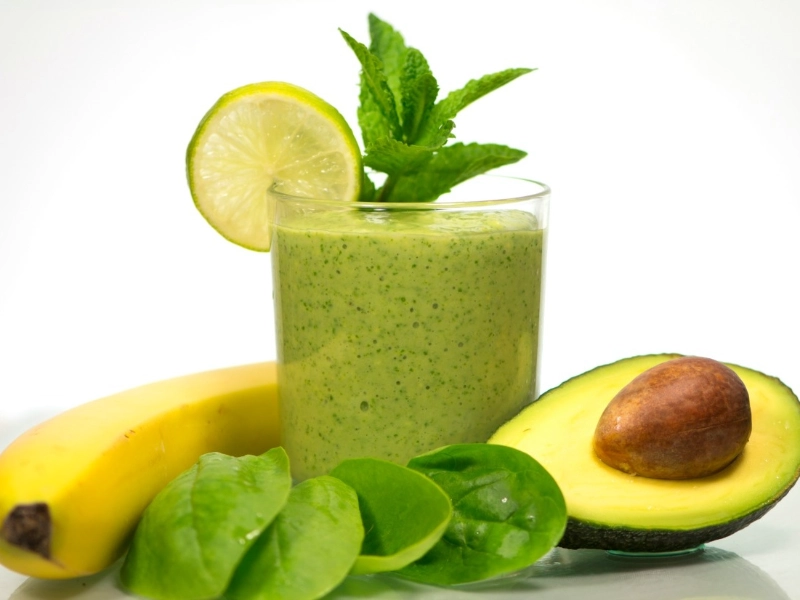 Avocados are rich in potassium, which balances sodium levels in the body and helps reduce arterial calcification. They also provide a wide range of additional vitamins and minerals that are essential for maintaining kidney and heart health. Avocados are rich in dietary
fiber, which helps you feel full and lowers blood pressure. They also contain monounsaturated fats that are beneficial for the heart. They are also a good source of vitamin E, an antioxidant that helps the body defend against free radicals.
Avocados are also rich in skin-friendly elements, such as phenolic compounds, carotenoids, and vitamin C. Thanks to their fatty acids, avocados are very good at reducing skin damage caused by oxidation. They are also a good source of potassium, and half an avocado will meet almost all of your daily recommended intake of this vitamin.
Avocados are rich in potassium, which balances sodium levels in the body and helps reduce arterial calcification. They also provide a wide range of additional vitamins and minerals that are essential for maintaining kidney and heart health. Avocados are rich in dietary
fiber, which helps you feel full and lowers blood pressure. They also contain monounsaturated fats that are beneficial for the heart. They are also a good source of vitamin E, an antioxidant that helps the body defend against free radicals.
Avocados are also rich in skin-friendly elements, such as phenolic compounds, carotenoids, and vitamin C. Thanks to their fatty acids, avocados are very good at reducing skin damage caused by oxidation. They are also a good source of potassium, and half an avocado will meet almost all of your daily recommended intake of this vitamin.
